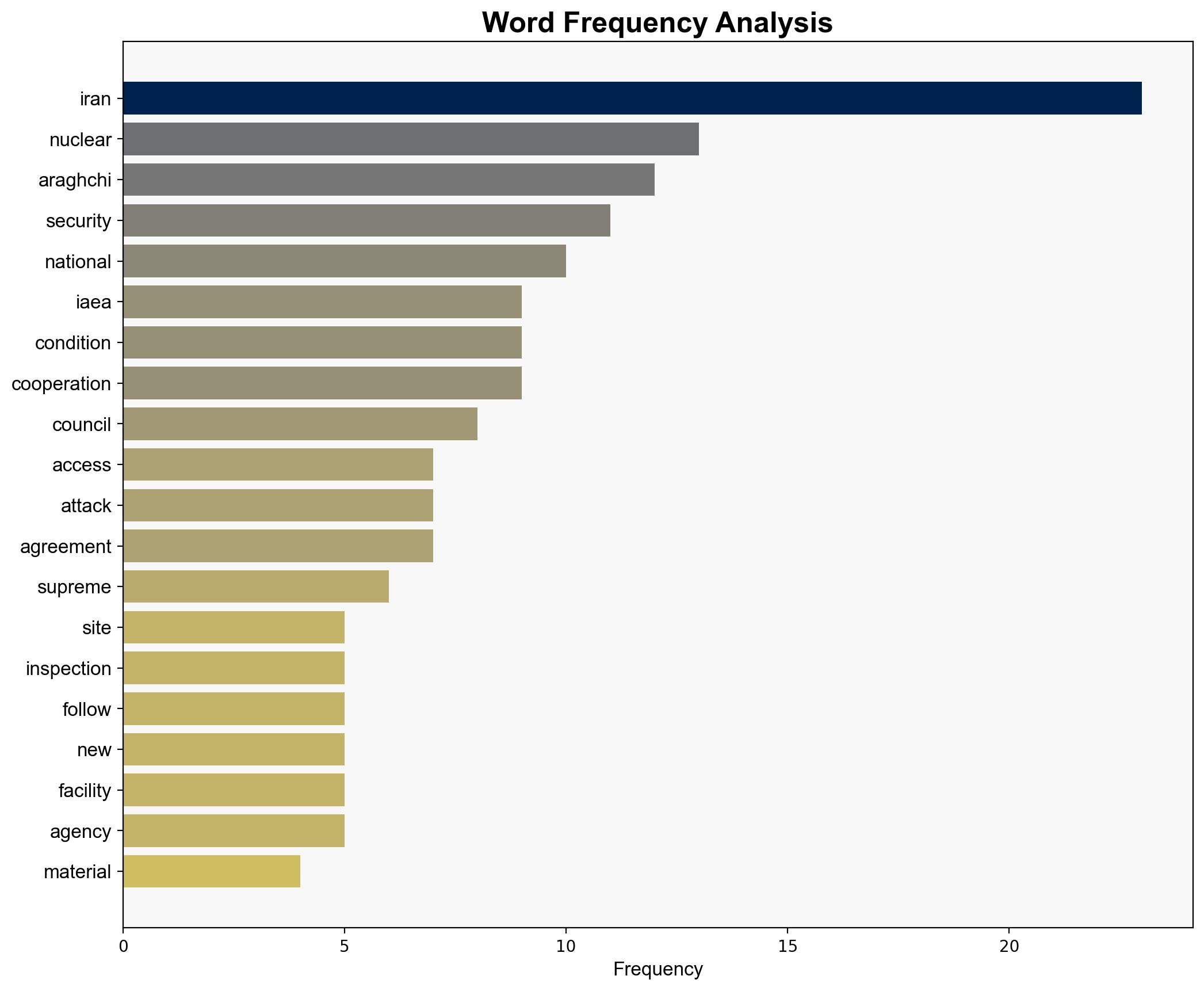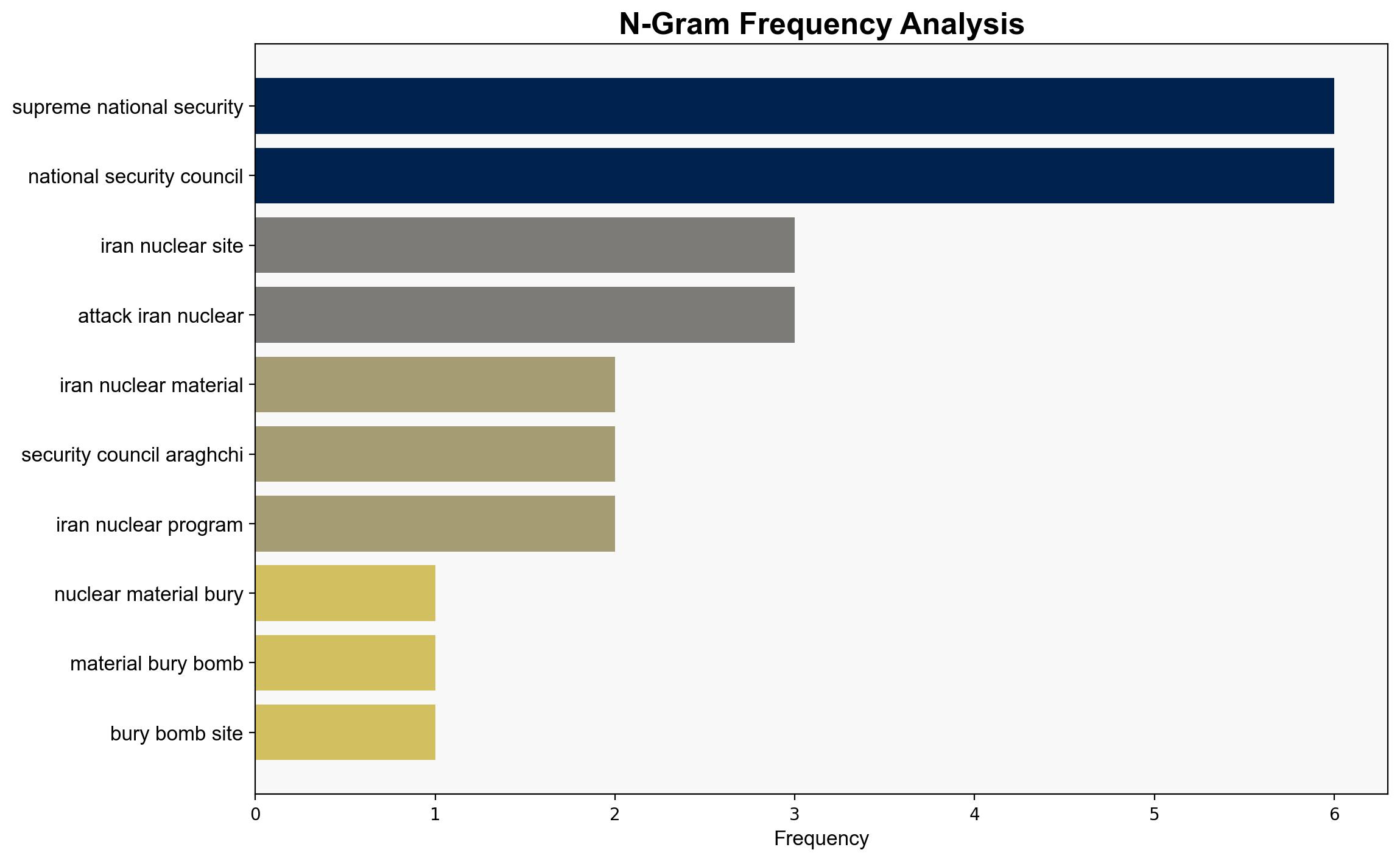Iran says nuclear material buried at bombed sites rejects unrestricted IAEA access – Globalsecurity.org
Published on: 2025-09-12
Intelligence Report: Iran says nuclear material buried at bombed sites rejects unrestricted IAEA access – Globalsecurity.org
1. BLUF (Bottom Line Up Front)
Iran’s refusal to grant unrestricted IAEA access to bombed nuclear sites suggests a strategic maneuver to maintain control over its nuclear narrative and security. The most supported hypothesis is that Iran aims to renegotiate inspection terms under a new framework, leveraging recent attacks to justify its stance. Confidence level: Moderate. Recommended action: Engage in diplomatic dialogue to clarify inspection terms while preparing for potential escalation in regional tensions.
2. Competing Hypotheses
1. **Hypothesis A**: Iran’s rejection of unrestricted IAEA access is a strategic move to renegotiate inspection terms, using the recent attacks as leverage to assert sovereignty and security concerns.
2. **Hypothesis B**: Iran’s stance is primarily a defensive measure to conceal potential nuclear advancements or non-compliance with JCPOA terms, using the attacks as a pretext to limit external oversight.
Using ACH 2.0, Hypothesis A is better supported due to Iran’s emphasis on new inspection frameworks and its diplomatic engagement with the IAEA, suggesting a focus on negotiation rather than concealment.
3. Key Assumptions and Red Flags
– **Assumptions**: Iran’s actions are driven by security concerns and a desire to maintain sovereignty over its nuclear program. The IAEA is willing to negotiate new terms.
– **Red Flags**: Discrepancies in accounts between Iran and the IAEA, potential bias in Iran’s narrative, and lack of independent verification of site conditions.
– **Blind Spots**: Limited information on the extent of damage and material status at bombed sites, and potential internal Iranian political dynamics influencing decisions.
4. Implications and Strategic Risks
– **Geopolitical**: Increased tensions between Iran and Western powers could destabilize regional security and impact global nuclear non-proliferation efforts.
– **Economic**: Potential sanctions or economic repercussions if Iran is perceived as non-compliant with international agreements.
– **Cyber and Psychological**: Heightened risk of cyber operations targeting nuclear infrastructure, and psychological operations to influence public perception.
5. Recommendations and Outlook
- Engage in diplomatic dialogue to clarify and negotiate inspection terms, emphasizing transparency and mutual security assurances.
- Prepare contingency plans for potential escalation, including regional security cooperation and economic impact assessments.
- Scenario Projections:
- Best: Successful renegotiation of inspection terms with enhanced security measures.
- Worst: Breakdown in negotiations leading to increased sanctions and regional instability.
- Most Likely: Prolonged diplomatic engagement with incremental progress on inspection terms.
6. Key Individuals and Entities
– Abbas Araghchi
– Rafael Grossi
– IAEA
– Iranian Supreme National Security Council
7. Thematic Tags
national security threats, cybersecurity, counter-terrorism, regional focus




